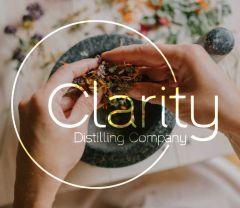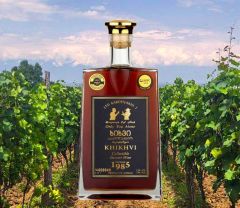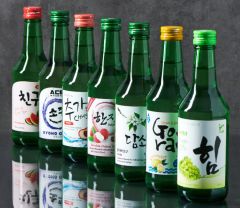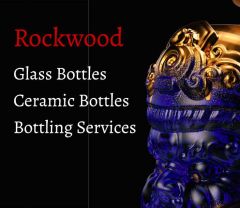REGULATORY CHANGES FOR THE USE OF SOCIAL MEDIA AS AN ADVERTISING MEDIUM FOR ALCOHOL BEVERAGES
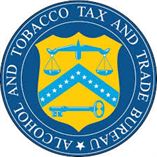 What this means amongst other things is that brands are required to include so-called “mandatory statements” (such as their location and product designation as prescribed by TTB) on social media properties in an obvious place (such as the “about” or profile information section) that is clearly visible with and associated with the message.
What this means amongst other things is that brands are required to include so-called “mandatory statements” (such as their location and product designation as prescribed by TTB) on social media properties in an obvious place (such as the “about” or profile information section) that is clearly visible with and associated with the message.
These mandates review advertisements that appear in various media, including print, television, outdoor, and website advertisements and enforce the regulations related to advertising for alcohol beverages. Advances in technology have led to the development of new forms of advertising (i.e., social media) that are interactive allowing consumers and industry members to generate content and create links between various social media outlets. With the emergence and growth of these types of media outlets TTB is expanding the breadth of its advertising reviews.
The TTB advertising regulations state that no industry member shall directly or indirectly or through an affiliate publish or disseminate or cause to be published or disseminated an advertisement that is in, or calculated to induce sales in, interstate or foreign commerce unless the advertisement conforms to the regulatory requirements.
The scope of the regulations is very broad, covering all forms of advertisement including ‘any other printed or graphic matter’. The regulations apply to specific types and also ‘any other media’, including types of media that did not exist when the regulations were originally adopted.
GUIDANCE TO ASSIST INDUSTRY MEMBERS
Due to the technological changes, and the ongoing evolution of social media, this is not intended to be an all-inclusive list of the types of social media. However, the general principles set out in this article can be applied to other social media outletsthat have been or will be developed.
a) Social Media Platforms (e.g., Facebook, LinkedIn, Friendster, My Space, etc.)
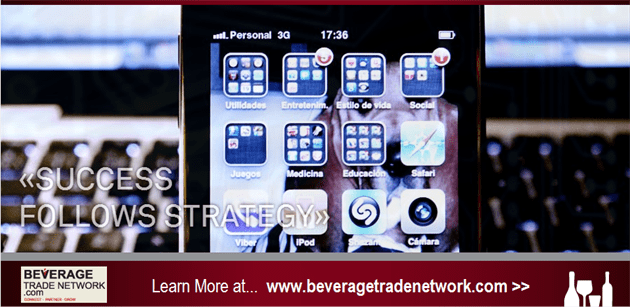 Many industry members have created pages on social network platforms for their company and/or a particular brand. There are sometimes referred to as “fan pages” or “pages”, and users of the social network service can become “fans” of the company or brand.
Many industry members have created pages on social network platforms for their company and/or a particular brand. There are sometimes referred to as “fan pages” or “pages”, and users of the social network service can become “fans” of the company or brand.
Fan pages for alcohol beverage products created by industry members fall under the category of ‘any other media’ in TTB´s regulatory definition of advertisement, and therefore fan pages are subject to the provision of the Federal Alcohol Administration (FAA) and TTB regulations.
TTB views the entire fan page (i.e., the Home page and all sub or tabbed pages directly associated with the Home page) as one advertisement, so mandatory statements need only appear once on the fan page, either on the Home page or on any sub or tabbed pages directly associated with the Home page.
The regulations require that mandatory statements on alcohol advertisements be:
1) Conspicuous and readily legible.
2) Clearly a part of the advertisement.
3) Readily apparent to the persons viewing the advertisement.
TTB strongly recommends that for the benefit of consumers, advertisers consider placing mandatory statements in a location that identifies the brand or the company. This is generally called the Profile section.
Any information or images posted to a fan page by an industry member including content created by a third party and reposted by an industry member is part of the fan page and therefore considered to be part of the advertisement.
b) Videos
Videos about alcohol beverages that are posted to video sharing sites by industry members are considered to be advertisements if they fall within the regulatory definition of advertisement. As with social network services, there is generally a location on each video sharing site to provide profile information where a viewer would most logically expect to find information about the brand or the company.
TTB recommends that mandatory statements be placed there. In addition, for videos that are subject to the advertising regulations if there is no associated ‘channel’ or profile section, or if the industry member allows video content to be downloaded by viewers then the industry member must include the mandatory statements within the videos themselves. By allowing videos that the industry member posts to be downloaded, the industry member is in effect disseminating an advertisement, so each advertisement must contain all of the mandatory statements required by regulation. When the industry member has both a ‘channel’ or profile section and individual videos TTB recommends placing the mandatory statements on both.
c) Blogs
Most blogs are interactive and allow visitors to leave comments or messages; it is this interactivity that distinguishes them from static websites.
If an industry member maintains a blog about itself (e.g., ABC Winery blog) and discusses issues related to the company, its products, or the industry in general, the blog is considered by TTB to be an advertisement and is subject to TTB’s advertising regulations because it is a written statement by the industry member that is designed to induce sales in interstate or foreign commerce.
d) Microblogs (e.g., Twitter, Tumblr).
A microblog differs from a traditional blog in that posts are typically very short. Microblog posts often include short sentence fragments, images, or links to videos. Commercial microblogs are designed to promote websites, services, or products. If a microblog is determined to be a written statement intended to induce sales in interstate or foreign commerce, it will be considered to be an advertisement under TTB’s regulations. The public can “follow” an industry member’s microblog posts, which will then appear on their own microblog page or be sent to a mobile phone or other device. Many microblog services have character limitations of around 140 characters. Due to these character limitations TTB has determined that it is impractical to require mandatory statements to appear in every microblog post made by the industry member. However, mandatory statements must appear in the advertisement in a manner that is conspicuous and readily legible. Similar to other social network services described above, industry members may include the mandatory statements on their microblog profile page.
e) Mobile Applications.
Some industry members are creating applications, also known as apps, that can be downloaded to consumers’ mobile phones or other handheld devices. These apps may provide drink recipes, assist consumers with finding locations where a product is served, or provide other information related to an alcohol beverage that the consumer may find of interest. TTB considers mobile apps related to alcohol beverages to be advertisements because mobile apps are written or verbal statements, illustrations, or depictions that are in, or calculated to induce sales in, interstate or foreign commerce. The only mandatory statement required to appear in the app is the company name or the brand name of the product.
f) Links and Quick Response Codes
TTB will consider the totality of the message presented by the advertisement and any links contained therein to determine if the content of the links will be considered part of the advertisement. In addition, any description of the linked site or page prepared and posted by the industry member that appears on the industry member’s social media advertisement must not violate the regulations concerning prohibited practices or statements because TTB considers the description of the linked site to be part of the industry member’s advertisement. Similarly, TTB considers any description of links included on industry members’ websites to be part of the advertisement.
An industry member may also provide links to other websites or pages for different alcohol beverages or companies for which it is the responsible advertiser. In that case, TTB would consider the linked website or page as a separate advertisement that must contain all necessary mandatory information and comply with the prohibited practices or statements regulations.
John Trinidad, a lawyer who works in the field of alcohol beverage compliance with Dickenson, Peatman and Fogerty in Napa, California mentioned that if a brand were found to be in violation of the new guidelines, the TTB might most likely first alert the brand to the problem and ask for it be to corrected or possibly ask it to take the page down or even levy fines. In very extreme cases, permits and licenses could be revoked. “But that’s a heavy hammer,” said Trinidad, and is unlikely.
“The thing (the TTB) would be most conscious of, and definitely want to enforce, are any health claims,” said Trinidad. “That’s where there’s probably a little more concern from the feds that the information could be false or misleading.”
It’s important to note that the TTB hasn’t created all new criteria for wine and alcohol producers to follow – it’s expanding the breadth of its existing advertising reviews to cover social media. And many larger wineries in the area have already been taking these types of steps, and are careful about any online promotion. “They’ve understood that the existing prohibitive practices would extend to whatever they put online,” said Trinidad. “They’ve been doing these things since before the guidelines came out, for the most part.”
But because of the ease of entering the social media space, many smaller wineries that might not have dealt with the Code of Federal Regulations on advertising in the past because they lacked the media budgets to advertise but may very well have maintained Facebook and Twitter pages, might be familiarizing themselves with these restrictions for the first time.
The Federal Trade Commission (FTC) has overall oversight of all advertising and has been conducting a study for more than a year on alcohol-beverage companies’ use of online advertising, with the results yet to be released. Trinidad speculates that the release of the TTB guidelines might be a sign that the FTC report might be eminent and the TTB didn’t want to be left behind. “These things go hand and hand,” said Trinidad. The FTC report might address some of the same issues as the TTB guidelines, but will focus on age verification – a subject the TTB guidelines on social media do not address.
There are some areas of the new guidelines that arenot clear even to savvy industry observers and many are already calling for greater clarification.
If a consumer or outside organization makes false or misleading claims, makes derogatory comments about a competitor or posts something lewd or indecent on a social media page that a brand controls, the guidelines are less than clear about the brand’s responsibility.
A winery would have to research every URL they post and make sure the content doesn’t violate a federal advertising law. The same goes for a re-tweet, a link in a blog, or a post on Facebook page. The TTB spokesperson contacted by the Index-Tribune confirmed that a brand could indeed violate the guidelines by linking to an external site that was not in accordance with the Code of Federal Regulations – say if a winery linked to a third-party site that defamed one of the winery’s competitors or one that made false health claims about wine.
Video-sharing sites such as YouTube and Vimeo can lead to another sticky situation. Because of the ability of YouTube videos to be syndicated, i.e. taken away from the context of the brand’s page where they should have the mandatory information, the required information needs to accompany the actual video somehow to be technically in compliance. A TTB spokesperson, when asked by the Index-Tribune, confirmed that that was the case and the intention of the guidelines. The guidelines are also retroactive to all videos a brand might have posted in the past.
Sources:
-Department of the Treasury- Alcohol and Tobacco Tax and Trade Bureau.
-Wine America.
-Sonoma News.
IMPORTANT
While these Web pages include links to select and important TTB-related analysis products, it is not a comprehensive source of such products. Visit our About TTB page for more information about our mission and functions. Beverage Trade Network takes no responsibility or does not provide any legal advise.


